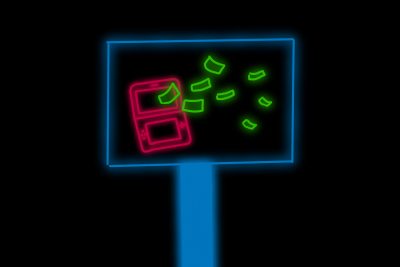This past weekend, while a massive tournament took place in the competitive “Super Smash Bros.” scene, some community figures still took the time to look away from the amazing games happening there to direct their ire at esports commentators for accepting the offer to commentate an event run by Nintendo.
“Hope the Nintendo money was worth it,” remarked one former Twitch employee in a tweet dripping with snark and contempt.

For the uninitiated, even though Nintendo created and developed every title in the Smash franchise, the competitive community around the series has a somewhat estranged relationship with them. This bad blood stems back many years, but one notable example is when Nintendo sent a cease-and-desist to The Big House event series, which was hosting a major tournament in November of last year.
As I mentioned in my column last week, Nintendo is harshly opposed to emulation, and this was the source of the issue. This is normally not a problem for Smash tournaments as they are run on actual consoles, but the COVID-19 pandemic sent tournament play fully online for several months.
This was still not a problem for Super Smash Bros. Ultimate, the newest title in the series. But it was an issue for Smash Bros. Melee, a game so old — released in 2001— that it has no built-in internet connectivity. This was where the legal trouble came in: emulated copies of the game on computers were quickly modified to work online to overwhelming success, and Nintendo sent a legal warning to a major tournament to protect their precious intellectual property.
Anti-Nintendo sentiment among Smash players skyrocketed after this incident and has only continued to build since. Justifiably so, as Nintendo has shut down additional modded Smash competitions in recent months, even ones where the modified games are being run on real consoles rather than computer emulators.
As I mentioned, some of this justified resentment against Nintendo’s business practices came to a disappointing head in the Smash community this weekend, as prominent community figures began criticizing freelance commentators for choosing to cast Nintendo-run events. These detractors went on to brand Smash commentators who choose to work with Nintendo “scabs” and otherwise liken the situation to crossing a picket line.
I take issue with this rhetoric on multiple grounds, but one of them is that the situation simply isn’t comparable to a labor strike in the first place. The entire reason going on strike works is that the employers lose their otherwise permanent workforce, but Smash commentators are not regularly employed by Nintendo — most events are entirely grassroots.
A more favorable interpretation of these critics is that they believe freelancers working on Nintendo-sponsored events are violating some sort of boycott, but such a thing has never been officially called for among Smashers on a large scale. After the aforementioned incident with a cease-and-desist sent to an online Melee tournament, the subculture never went farther than “murmurs” or “subtle nods” to boycott the company, even as hashtags like #FreeMelee went viral.
Commentators were therefore chided on Twitter for either violating a strike that doesn’t exist or a boycott that barely happened. But the fact that this happened points to a disappointing trend. In my opinion, arguments on social media are not simply an attempt to disprove one’s opponent — they are a performance for viewers, where each person postures to look virtuous and morally superior. Using the vocabulary of labor disputes, out-of-place as they are, grants someone the appearance of a noble Gilded Age freedom fighter and underdog.
Even though the actual disagreement boils down to scolding a freelancer for seizing a mostly inconsequential opportunity to make much-needed money, the overture to a picket line helps hide this. If we don’t oppose such a loose interpretation of the language of activism, I worry that the subversive power of the idea of a strike will only be lost even further. How then will we articulate meaningful real-life fights for a better standard of living?



























































































































